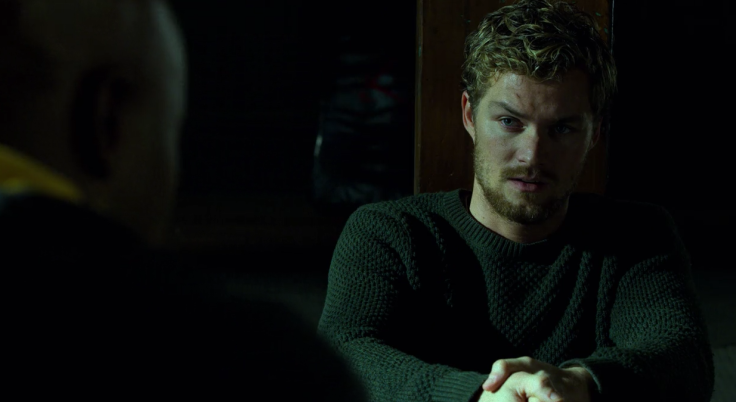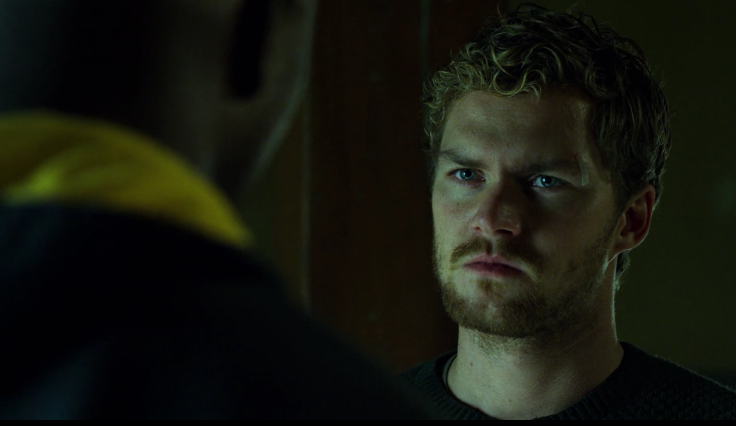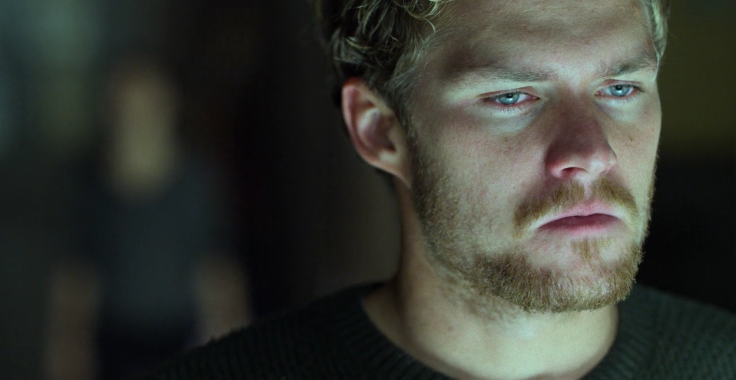Iron Fist proved a polarizing disappointment for Marvel Netflix. A few people liked the series, some people thought it was ‘meh’ and some hated it. If you were one of the people who suffered through the entirety of Iron Fist Season 1, it was hard to give the character a clean slate in The Defenders regardless of how you felt about Danny Rand. But thankfully, in episode 3, Luke Cage did everyone a favor. Even though themes in Iron Fist Season 1 should never be excused, maybe now, we can all get a little bit more invested in how Marvel plans to develop Iron Fist. Spoilers for The Defenders episode 3 ahead.
The conversation between Luke Cage and Iron Fist tackled white privilege head on, and gave fans some insight into why Danny Rand was portrayed the way he was in the first season of Iron Fist. Could it be that in order for this dynamic between Iron Fist and Luke Cage to work, everyone needed to absolutely hate him? All the Defenders included? They all take jabs at him. Was his purpose to be made an example of in The Defenders, so we can explore this problematic dynamic in Iron Fist Season 2 or a Heroes For Hire series down the line?

Let’s breakdown the conversation. Here’s the transcript.
IF:I just want to help. That’s what lead me to that warehouse.
LC: You call that helping. You were going to beat that kid within an inch of his life.
IF: Come on. I wasn’t going to kill him.
LC: It sure looked like it.
IF: The Hand is dangerous. They murdered my parents, invaded the city I was sworn to protect.
LC: That kid has nothing to do with all that.
IF: Of course he does. He works for them.

LC: He needed a job.
IF: That’s not an excuse. You never fought someone to protect someone else?
LC: Of course I have.
IF: Okay so what’s the difference?
LC: The difference is, I live on their block. The difference is, I’m not some billionaire white boy who takes justice into his own hands and slams a black kid against the wall because of his personal vendetta. Yeah, Claire told me about you on the way over here. Not all the mystical parts but everything else.
IF: The money? That doesn’t define me.
LC: Maybe not. But that kid is sitting in a jail cell tonight and you're not.
IF: Neither are you.

LC: Not this time. But I’ve seen my share of injustice.
IF: The guy in the white hat...He’s just the beginning. You're not thinking about the bigger picture.
LC: And you're not thinking about anything but yourself.
IF: Hey, you know nothing about me.
LC: I know enough. And I know privilege when I see it. You may think you earned your strength. But you had power the day you were born. Before the dragons. Before the chi. You have the ability to change the world without getting anybody hurt.
IF: These people won’t be stopped that way.
LC: Oh, so you are taking the war to the ones at the bottom, is that it? If I were in your shoes, I’d think twice about using that thing on people who are trying to feed their families. This isn't going to work out. It’s obvious. Good luck, man.

There are a lot of things going on in this conversation that Iron Fist can’t even begin to understand. He’s completely oblivious to how money gives him power and influence greater than his special fist. He can’t comprehend how, even though his parents were murdered and he grew up in a hidden mystical city, how he could possibly have any privilege. He doesn’t have the life experience to understand why a young kid would choose illegal activities over a minimum wage 9 to 5 and truly believes “there is no excuse.” He doesn’t understand the difference between how he helps Harlem and how Luke Cage helps Harlem. When Luke Cage calls him a “billionaire white boy taking justice into his own hands,” he’s referencing Iron Fist’s white savior trope.
Danny is defensive, the response many white people have when people of color challenge them with questions about white privilege. The way the conversation ends, and it’s result, are also telling. Luke Cage does not guide Iron Fist through this conversation. That is not the responsibility of black people. It’s also clear that while Luke Cage may not agree with Iron Fist, or see eye-to-eye, he does not consider Danny Rand a bad person. And while Iron Fist is upset, after Luke leaves, he meditates on Luke’s words and it completely changes the trajectory of his character.

IF: What if he’s right? The fist is one way to win this war but I do have others. I’m not talking about money. I have connections, access. Why am I fighting street level operatives when I have the power to go right to the top? A good warrior uses every tool at his disposal. I own 51 percent of a major corporation. I’ve got to try this another way.
While Danny Rand is certainly the most unlikeable Defender, the series should make Iron Fist haters at least a little bit happy. In addition to this impactful conversation that tackles the problematic nature of his character head on, he barely even appears later in the series. Most of the time, it’s Daredevil, Luke Cage and Jessica Jones fighting The Hand. He actually comes off as a quite helpless and clueless child. He’s the least talented fighter of the group, and can’t really summon his Iron Fist but a few times in the whole show. We also find out there are a lot of things Danny doesn’t know about Ku’n-Lun, The Hand, and the power of his fist.
The Defenders proves Danny Rand’s power is his wealth and influence, not his Iron Fist. The thesis of my review of Iron Fist Season 1 was that “the struggle is not real.” And recently, I even questioned why Danny Rand even deserves the power of the Iron Fist. Well, after The Defenders, I will say while I still don’t love the character, I am excited to see where Marvel goes with Danny Rand. While many, myself included, wanted an Asian-American actor to play Danny Rand to push the culture forward and give actors of color a seat at the table, it’s clear Marvel had other plans for a specific reason…to have the above conversation.
The appeal of Heroes for Hire, and the modern day purpose of exploring that duo, is the relationship between a white man and a black man. And while we need less white characters and story arcs that don’t mirror the racist tropes from the comics, Heroes for Hire would not be as impactful any other way if Marvel’s goal is to keep having these conversations about social issues. If Marvel is able to bring the purposefully problematic nature of his character full circle, I just might be invested in his character again.
- Funny interactions
- Team action sequences are on point
- Slow start
- Left with many questions

















